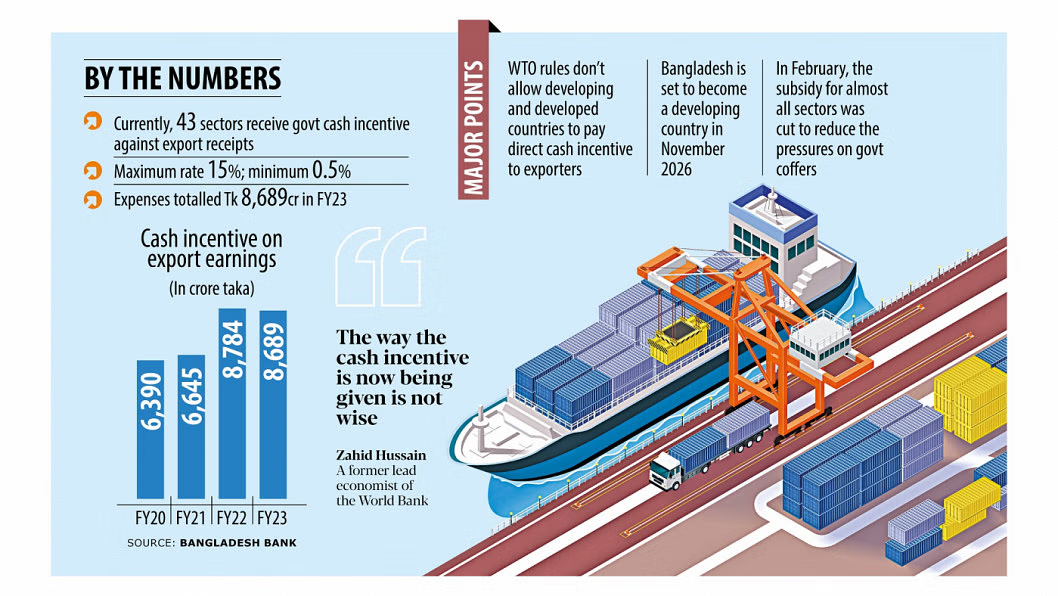The garment industry of Bangladesh says it has the potential to lead the global circular economy as it begins a new partnership aimed to deal with its textile waste problem. The goal of the partnership – Circular Fashion Partnership – is to support the development of Bangladesh’s recycling industry by converting post-production fashion waste into new fashion products and seeking solutions for Covid-19 related pile-up of deadstock. Denmark-based sustainability forum Global Fashion Agenda (GFA) launched the partnership, a multi-sectoral project, with Bangladesh on 30 November last, reports just-style – a UK based online news, insight and research portal for the apparel and textile industry. Industry insiders of the country hailed the project, saying the country will enjoy additional earnings by exporting textile waste. However, the GFA project involves P4G, a network of global leaders and innovators seeking breakthrough solutions for green economic growth, project partner Reverse Resources, the Bangladesh Garment Manufacturers and Exporters Association (BGMEA), and textile and garment manufacturers, recyclers and major fashion brands operating in Bangladesh. Stage-1 of the partnership will involve mapping and tracing waste streams. In Bangladesh, currently the waste is mixed together and sold on cheap and quick. So, the aim to the partnership is to set up new streams directly in factories as mixed waste loses its value instantly, the report elaborates. And, Stage-2 will involve bringing the recycler and the brands together, in an aim to improve quality and also talk about different pricing mechanisms in order to make recycled yarns competitive with virgins. Collaborators say they will work closely together on the policy changes that need to happen in Bangladesh to really drive and establish a recycling industry in the country through the testing and creation of new business models. “The word, circular economy, is no more just a concept; it is the future, and we have to embrace it if we are to make the world sustainable,” said Dr Rubana Huq, president of the BGMEA, speaking on a Global Fashion Agenda webinar on 30 November to launch the Partnership. “The global fashion industry has a huge part to play, shifting this entire linear model to a circular one. That is the only way in which we can conserve resources,” she also said. Bangladesh is the second-largest manufacturer in the world, and therefore also one of the largest producers of textile waste, with around 400,000 tonnes of post-production textile waste produced annually. The majority of its textile waste is exported to India but Rubana says there is almost $4 billion worth of business being lost in Bangladesh through recycling – a potential area for new business. At present, Bangladesh recycles less than 5% domestically. “We need more investments so that we end up having more recycling facilities domestically to improve our business case,” Rubana explained. Rubana said “massive capacity building” will be the key, and continued engagement with the central bank and policymakers to ensure a more comprehensive incentive mechanism for investors, and a more customised approach to supporting businesses. She also pointed to the need to regulate the “highly unregulated” garment businesses that circle around the landscape of waste in Bangladesh. Ultimately, the goal of the partnership is to maximise the textile waste through segregation at source and trace waste in the value chain through the joint collaboration of brands and factories. “Globally, the demand for circular products is increasing, brands are coming with different pledges and manufacturers cannot afford to remain indifferent. We also have to align ourselves to the global trend, and we have the possibility to be global leaders in the circular economy. So the earlier we adopt this, the better,” the BGMEA leader added. Miran Ali, a BGMEA director, said the project also has plans to develop a B2B marketplace for stock fabrics which are generally treated as the leftover. But the new initiative will help to get a small quantity of value-added product orders which would be developed by a number of freelancer foreign designers, he added. “Usually, we do not get small orders,” Miran Ali said, adding that such unused imported fabrics currently sells at a lower price as Jhut or wastage.
RMG BANGLADESH NEWS
A Knowledge-based Initiative of Best Sourcing
Ready Made Garments sector is the key source of foreign currency and GDP for Bangladesh. Approximately 4.2 million people are dependent on the RMG sector for their bread and butter.
Ready Made Garments sector is the key source of foreign currency and GDP for Bangladesh. Approximately 4.2 million people are dependent on the RMG sector for their bread and butter.
Contact us: info@rmgcentre.com
© Copyright 2019 - RMG Bangladesh
















